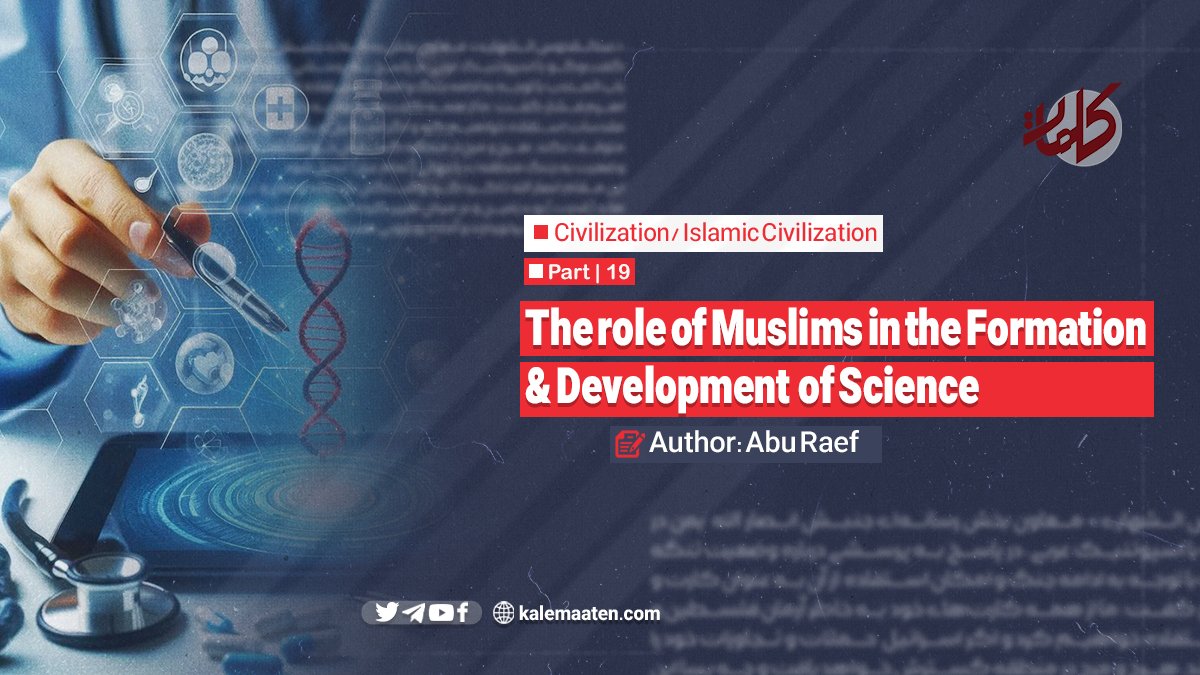Author: Abu Raef
The Role of Muslims in the Formation and Development of Sciences (Part 19)
Abnormal Birth
One of the specialized topics that Muslim physicians addressed and provided solutions for is the issue of abnormal births in women. When a woman becomes pregnant but does not give birth naturally, and the fetus is delivered in an unusual manner—such as being in a reversed or inverted position—Islamic physicians have recommended various methods to treat this condition.
Imam Zahrawi writes on this subject:
“One type of abnormal birth is when the fetus is delivered feet-first. In this case, the fetus must be rotated. If the fetus is positioned transversely or is leaning on one of its hands, the position of its hands must be corrected so that the fetus is placed in a normal and natural posture. The same considerations should be applied in the case of twin or multiple births.”
Regarding the repositioning of a fetus’s hand or foot that has emerged from the womb, Imam Zahrawi invented a tool called Madfa‘ (meaning “repeller”), which was used to push the hand or foot of the fetus back into the womb. This tool was not mentioned in Greek medical books.
Difficult Births
Another topic that Muslim physicians explored is difficult births. Sometimes, pregnant women experience conditions that make childbirth very challenging, preventing them from delivering their baby easily. Imam Baladi, one of the prominent Islamic physicians, examined the causes of difficult births with great scientific precision and classified them into two main categories:
Factors Related to the Pregnant Woman:
1. Obesity
2. Small uterus
3. Presence of swelling or growths in the uterus or other organs
4. Suffering from other diseases
5. First-time childbirth (no prior experience of giving birth)
6. Fear or anxiety during labor
7. Premature labor
8. Natural weakness of the uterus
9. Early birth (before the expected due date)
Factors Related to the Fetus:
1. Excessive size or extreme smallness of the fetus (especially in first-time births)
2. Large fetal head
3. Congenital abnormalities, such as having two heads
4. Death of the fetus before birth, resulting in delivery in this condition
5. Weakness of the fetus and inability to move
6. Presence of multiple fetuses
Specific Fetal Conditions at Birth
Some abnormal fetal positions during birth that may cause difficulty in labor include:
1. The fetus exiting the womb in a reversed position, with its hands placed on its thighs and its head not moving toward the womb’s opening.
2. Both feet emerging first during labor without any deviation or other abnormal exit forms.
After listing all these conditions, Imam Baladi provided detailed treatments and remedies for difficult births. With a scientific and practical approach, he sought to offer appropriate and effective solutions for each problem.
Muslim Physicians’ Views on Birth Control Methods
Muslim physicians also presented various opinions and theories regarding contraceptive methods and tools. They recommended and prescribed several effective methods and devices for both men and women. Some of the key birth control methods proposed by Muslim physicians include:
1. Coitus Interruptus (Withdrawal Method): This was one of the most well-known contraceptive techniques. Islamic scholars deemed it permissible, provided it was done with the wife’s consent. Scholars like Imam Nawawi, Ibn Azraq, and many other jurists and physicians mentioned this method in their works. However, modern medicine has identified various psychological effects associated with this practice.
2. Prescribing Medicines: Islamic physicians introduced multiple drugs and herbs for contraception that were beneficial for both men and women. These included substances like elephant dung, pepper, black seed, cabbage, mint extract, bitter pear oil, spinach, camphor, scammony plant, iron oxide, and tar. Even today, extracts from some of these plants or their derivatives continue to be used for this purpose.
3. Intrauterine Devices (IUDs): The concept of using a device to prevent pregnancy, now known as the IUD, is not a modern invention. Muslim physicians noted that early Arabs used a similar technique—placing a small stone inside the uterus of camels to prevent pregnancy during long journeys.
4. Methods for Men: Physicians also advised men to apply substances like tar oil, onion extract, lettuce extract, or balsam extract to their genitals before intercourse to prevent pregnancy.
Examination of Infertility in Couples
Another significant topic that Islamic physicians addressed concerning family health was infertility in couples. They examined this issue from two primary perspectives:
1. Male Infertility: Many Muslim physicians extensively discussed male infertility and its causes, which included:
– Presence of tumors in the testicles
– Inability of the testicles to produce sperm
– Testicular injuries caused by trauma or inflammation
– Increased body heat due to wearing tight clothing or engaging in occupations that require prolonged sitting
– Chronic diseases
– Issues related to intercourse or abnormalities in the reproductive organs
2. Female Infertility: Muslim physicians also identified various causes of infertility in women, including:
– Problems with ovulation
– Blockages in the fallopian tubes
– Cervical dysfunction
– Uterine abnormalities and diseases, such as swelling, fibroids, or adhesions
Prominent physicians such as Imam Razi, Ibn Sina, and Imam Baladi discussed these topics in depth. They provided a wide range of treatments for infertility, which were considered highly advanced and scientifically sound for their time.
Continues…
1. Al-Tasrif Laman Ujaz an al-Talifi, p.: 116.
2. The same source, p. 122.
3. Baladi, Ahmad bin Muhammad bin Yahya, Tadbir Al-Habali, children and boys and maintaining their health and treating their chronic diseases, pp. 165-163, Dar al-Rashid, 1980, Iraq.
4. Gynecological diseases and obstetrics in Arabic Islamic medicine, pp. 81-86.
5. The same source, pp. 87-100.



